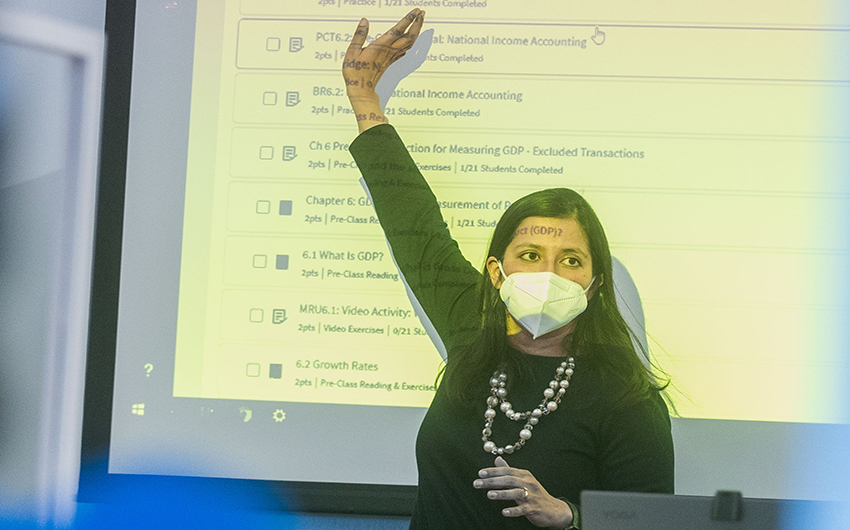
TOPICS:
Dr. Ishani Tewari was recently named a CORE-Teagle Fellow, a fellowship program led by CORE-USA and funded by the Teagle Foundation to transform the teaching of economics to college students throughout the country. She joins a community of academic experts working to revitalize economics education by developing a modernized, empirically grounded, and historically informed U.S. economics curriculum. This spring, the associate professor will begin creating new material for introductory economics courses and integrate the new curriculum within her classes at the College.
The U.K. based consortium CORE Economics Education (Curriculum Open-Access Resources for Economics) produces free high-quality resources that depart from the conventional approach to teaching economics. CORE scholars see the introductory curriculum in economics at many institutions as disconnected from the history of economic thought and contemporary challenges related to the recent financial crises, globalization, and economic development. More than 2,300 verified instructors use the CORE instructional resources, and more than 30,000 students across 78 countries have registered for access to the e-book. With recent funding from the Teagle Foundation, the program has now established the CORE-USA Consortium to further the use of its curricular resources in U.S. institutions.
"The CORE faculty strongly felt that the vast majority of economics had not been re-thought or adapted to help students' think about major twenty-first-century economic issues like mounting inequality, environmental sustainability, innovation and the future of work and financial instability," says Dr. Tewari, associate professor of economics. "I first encountered The Economy, which is the CORE's undergraduate principles textbook and was immediately drawn to its approach. The idea was not to teach a bunch of abstract theories which may or may not be useful, but to equip students with the tools that help them tackle problems."
As part of the fellowship, Dr. Tewari will be working with the CORE-USA team based at Barnard College to develop curriculum, instructor resources, and other materials that help facilitate the adoption of CORE's resources in American universities and colleges. Another key goal for the program is to help attract a more diverse student body to economics, whose perspectives can enrich public policy and discourse in the United States and beyond.
"Over the next year or so, I would like to fully switch to using The Economy as my primary text for micro and macroeconomics classes," she says. "I think it will go a long way in helping students see economics, not as a bunch of dry math and theories, but a way of thinking that will help them understand the complexities and practical reality of the economy in which they live and work."